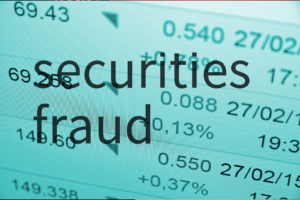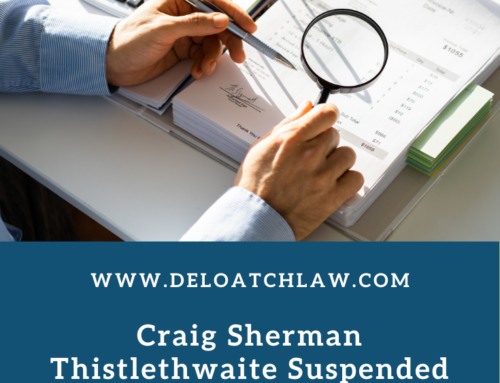Securities regulators and law enforcement have stepped up their efforts in combating securities fraud through social media influencers and their recommendations. The rise of social media has created modern day snake oil salesmen – i.e., influencers with promises of riches from their securities recommendations, tips and stock picks. Quite often these tips are nothing more than the classic pump and dump scheme to commit securities fraud (i.e., artificially increasing the price of the stock to later sell at the artificially increased price). In response, the U.S. Department of Justice (DOJ) and The Securities and Exchange Commission (SEC) have been increasing their focus on the use of social media as a tool for securities fraud.
 Social Media Driven Stock Recommendations (Meme Stocks)
Social Media Driven Stock Recommendations (Meme Stocks)
In the wake of the activity in “meme stocks” like GameStop (NYSE: GME) and AMC Entertainment Holdings Inc. (NYSE: AMC) the DOJ and/or the SEC have investigated and brought several actions against individuals who were/are alleged to have used social media to commit securities fraud.
Most recently, On December 14, 2022, eight social media influencers were indicted on charges of conspiracy to commit securities fraud through their recommendations, out of the Southern District of Texas. The indictment was the result of a parallel investigation conducted by the DOJ and the SEC.
According to the SEC, seven of the defendants carried out the scheme by coordinating the acquisition of shares, promoting shares to followers, and dumping them for “substantial profits.” An eighth defendant is alleged to have co-hosted a stock-trading podcast that promoted the other defendants as expert traders and “provided a platform for other defendants to deceptively promote the stocks they intended to dump.”
As alleged in the unsealed indictment:
The defendants used their credibility to maximize their own trading profits through their tweets and posts in Atlas Trading Discord, often at the expense of their Twitter followers and members of Atlas Trading Discord. Indeed, the defendants used their social media influence to pump and dump securities for their own financial gain.
To do so, one or more of the defendants first purchased a security, often notifying other defendants of the purchase so that they, too, could “load” and buy the security. After purchasing or “loading” the security, one or more of the defendants sought to “pump” the price of that security by posting false and misleading information about the security on Twitter and Atlas Trading Discord so that other investors were induced to purchase the security and artificially increase its price.
Increasing Scrutiny of Social Media Recommendations
The December 14th indictment out of the Southern District of Texas is just the latest well publicized action brought by the DOJ and/or the SEC against individuals who are alleged to have used social media to commit securities fraud.
On March 2, 2021, the SEC filed a federal securities lawsuit against Andrew L. Fassari (SEC v. Andrew L. Fassari), who it alleged used various social media outlets to make false statements about Arcis Resources Corporation (ARCS), a company that had been defunct for years. The SEC charged Mr. Fassari with violating the antifraud provision of the federal securities laws, Section 17(a) of the Securities Act of 1933 and Section 10(b) of the Securities Exchange Act of 1934 and Rule 10b-5, thereunder. Some of the specific allegations in the complaint include:
- “[Mr.] Fassari published numerous false and misleading posts on social media platforms about Arcis Resources Corporation (“ARCS”), a publicly traded company that has been defunct since at least 2016, while secretly trading the securities of ARCS in violation of the federal securities laws”;
- “[Mr.] Fassari purchased tens of millions of shares of ARCS, then deceptively spread false information about the company’s purportedly revived operations and imminent positive announcements on Twitter, among other social media platforms”; and
- “After the share price rose, [Mr.] Fassari secretly sold all of his shares, obtaining ill-gotten gains of over $929,000.”
The December 14th indictment of the eight individuals in the Southern District of Texas is a clear indication that DOJ and/or the SEC have increased their scrutiny and will use all available tools to go after anyone who disrupts the integrity of the securities markets.
 Digital Footprint as Investigatory Tool
Digital Footprint as Investigatory Tool
All internet connected devices, such as computers, tablets, smartphones and routers have IP addresses, which identify the specific device. The IP address is traceable from every website that device engages with directly back to the owner and/or user(s) of the device(s).
Moreover, creating brokerage and social media accounts require the user to provide additional identifying information, such as a name, username and whatever additional profile information that’s required for establishing the account.
When someone uses their computer or smartphone to 1) open an on-line trading account; 2) create a social media account; and 3) then make statements regarding securities on that social media platform, those interactions are all connected by the common IP address(es). This in turn, creates a very detailed picture about the user, including but not limited to:
- The name of the user;
- The nature of what was said;
- When they made the statement;
- What social media platform they used;
- The device(s) they used to make the statement(s);
- Who they interacted with;
- The on-line trading platform(s) they used; and
- When they made any related transactions.
In short, for federal investigators, each point of engagement creates a detailed paper-trail back to the user. From the perspective of the investor, depending on what this information reveals, it can be the proverbial lifeline, a lasso or worse yet, the hangman’s rope.
Have You Lost Money Through Securities Fraud or are the Target of an Investigation?
Whether you are the victim of social media driven securities fraud, the target/subject of a securities fraud investigation or have been charged with securities laws violations, The Law Office of Kevin J. Deloatch, Esq. can help. My Office has an extensive securities law practice and over 30 years of experience on Wall Street. Call today at (646) 792-2156 for a free consultation.








